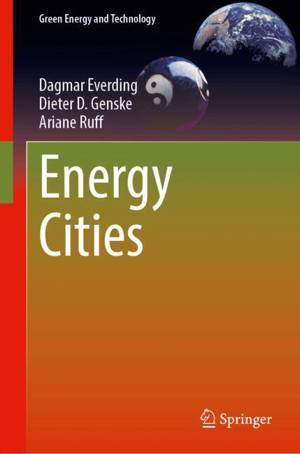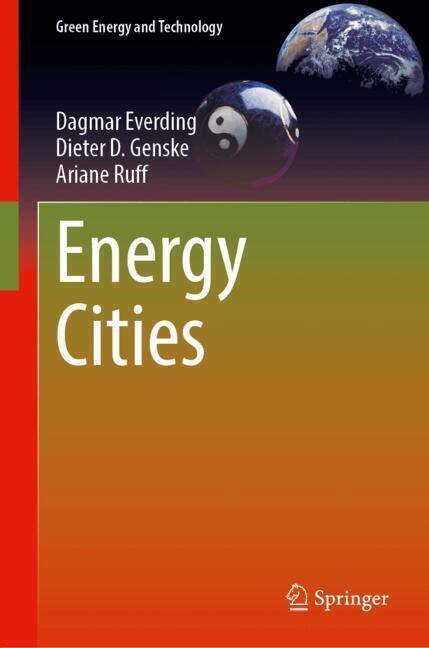
- Afhalen na 1 uur in een winkel met voorraad
- In januari gratis thuislevering in België
- Ruim aanbod met 7 miljoen producten
- Afhalen na 1 uur in een winkel met voorraad
- In januari gratis thuislevering in België
- Ruim aanbod met 7 miljoen producten
Omschrijving
With cities and regions moving away from fossil-nuclear energy sources, the importance of energy-ecological urban transformation is growing. A growing number of stakeholders are committed to transitioning energy supplies to renewable sources and promoting resource-efficient ecological cycles in their communities. Energy-ecological urban transformation directly improves living and environmental conditions in neighborhoods, creates new economic opportunities, and generates jobs. Cities are being transformed into 'energy cities' that adhere to the principles of sustainability, minimizing energy-ecological footprints, and reducing land consumption.
This book envisions future scenarios of urban transformation for stakeholder discourse. It provides a cross-disciplinary description of urban planning, engineering, and economic approaches to energy-ecological urban transformation, including methodological solutions. Numerous interesting project examples are presented to illustrate these concepts.
The target audience for this book includes municipal administrations and climate protection managers, planning and engineering firms, environmental organizations, as well as students and educators.
Specificaties
Betrokkenen
- Auteur(s):
- Uitgeverij:
Inhoud
- Aantal bladzijden:
- 326
- Taal:
- Engels
- Reeks:
Eigenschappen
- Productcode (EAN):
- 9783662705834
- Verschijningsdatum:
- 6/06/2025
- Uitvoering:
- Hardcover
- Formaat:
- Genaaid
- Afmetingen:
- 164 mm x 237 mm
- Gewicht:
- 730 g

Alleen bij Standaard Boekhandel
Beoordelingen
We publiceren alleen reviews die voldoen aan de voorwaarden voor reviews. Bekijk onze voorwaarden voor reviews.









